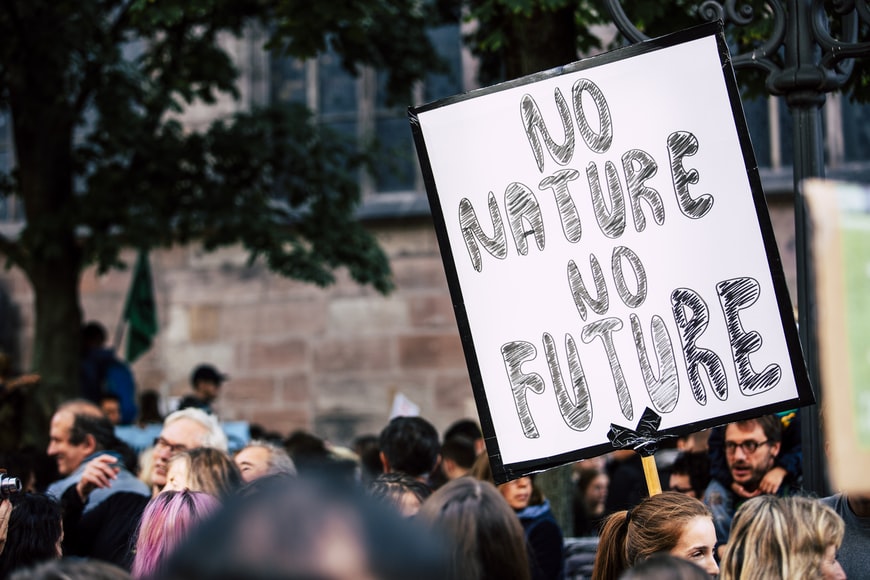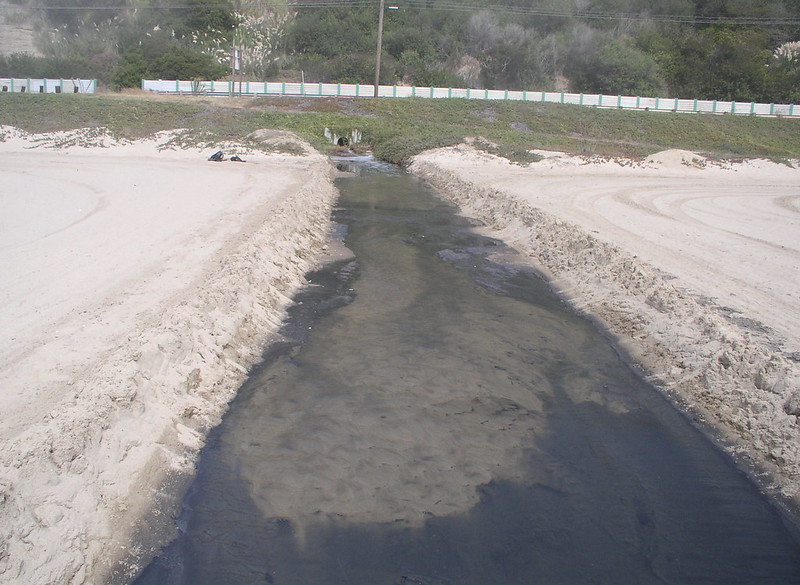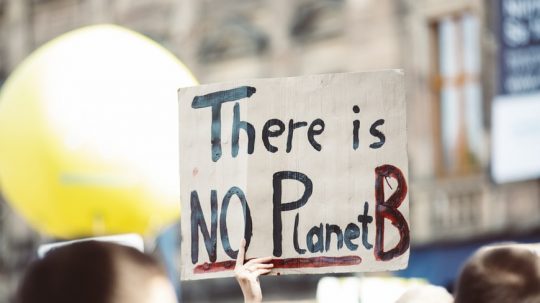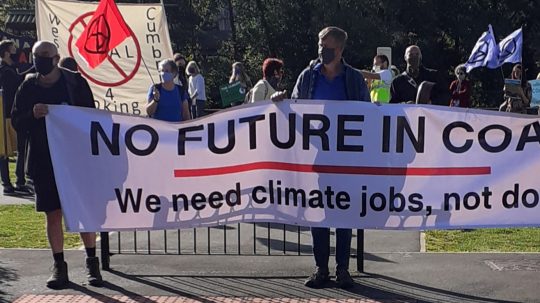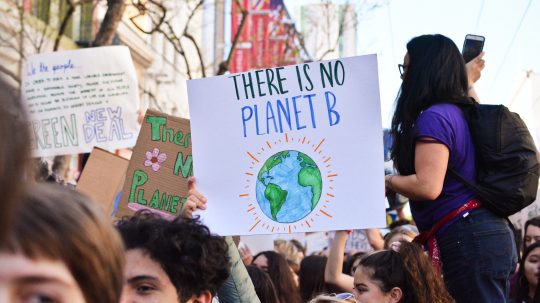Voices from around the world have called for leaders at COP26 to create international law against ‘ecocide’. Lucy Skoulding explores what ecocide means and how existing legislation could be used to prevent it.
Indigenous peoples account for just 5% of the world’s population but they are guardians of 80% of the world’s biodiversity.
Without doubt, they are the best and strongest protectors of our environment.
They contribute least to climate change and yet are the worst affected by it. Not only is the environment where they live being damaged, but so too are their traditions, cultural identity and even their human right to life.
When put like that, the actions causing this destruction can reasonably be called heinous crimes. So too could actions closer to home that are causing environmental damage and destroying ecosystems: lethal levels of air pollution; the opening of a new oil field in the UK, set to threaten communities around the world; and untreated sewage being dumped into rivers and seas.
What is ecocide?
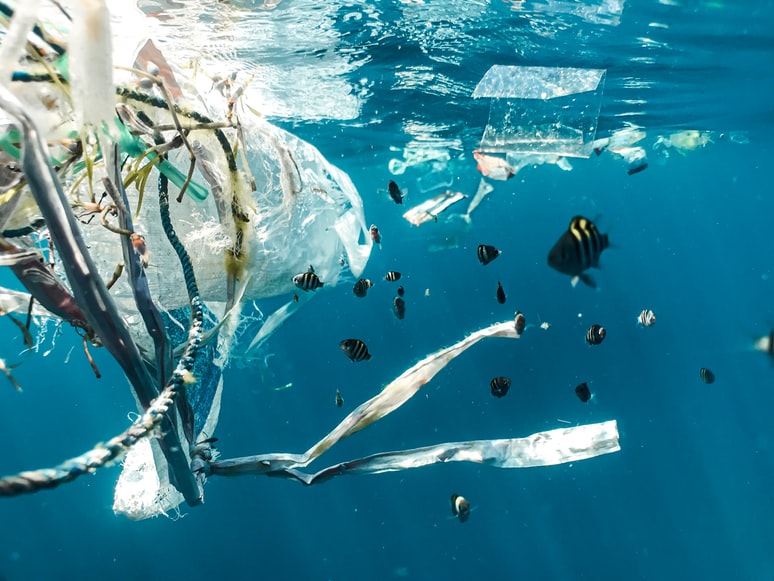
Credit: Naja Bertolt Jensen via Unsplash
Jack Robirosa, solicitor at Hodge Jones & Allen Solicitors, has said: “Environmental damage is already a crime in the UK. Environmental offences can include causing pollution, harming wildlife and breaching a permit relating to water or waste”.
“The majority of criminal prosecutions in England are carried out by the Environment Agency (EA). Companies can be prosecuted, as can senior managers if the offence is committed with their consent or as a result of their neglect.”
So where does ecocide come into this? Robirosa explained that part of the issue is that the Environment Agency has “insufficient funds” to enforce the law effectively against companies which commit “serious environmental damage.”
He added that giving the term ecocide legal definition, particularly using the word “wanton”, would “offer more creative routes to prosecution of environmental crimes”.
Ecocide literally means “killing the environment”. As defined by the NGO Stop Ecocide Foundation, ecocide is “mass damage or destruction to ecosystems, committed with knowledge of the risks”.
The concept first came about during the Vietnam War in 1970 at the Conference on War and National Responsibility and it was brought up again two years later by the Swedish prime minister Olaf Palme, who was pushing for an international environmental regulatory system to combat grave environmental degradation.
Over the following decades, the notion of ecocide as a crime was addressed and readdressed, and then, in 2010, the late Polly Higgins, a British environmental lawyer, submitted a draft law of ecocide to the United Nations Law Commission. Higgins was proposing an amendment to the Rome Statute to make ecocide the fifth international crime against peace. It would become an arrestable offence.
Then, in June this year, legal experts from around the globe drew up a new definition of ecocide as “unlawful or wanton acts committed with knowledge that there is a substantial likelihood of severe and widespread or long-term damage to the environment being caused by those acts”.
Currently, several countries have incorporated it in their domestic criminal codes, including Russia, the Ukraine, Belarus and Georgia, but it is not a crime in the UK and nor is it accepted as an international crime by the UN.
Ecocide as a crime
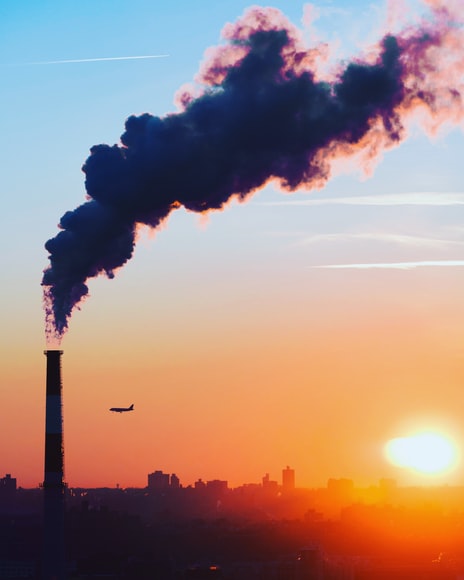
Credit: Thijs Stoop via Unsplash
Giving a TED talk, Higgins said that while she was representing a man in court who had been badly injured in his workplace, she looked out the window during a break and realised “the Earth has also been badly injured and harmed and something actually needs to be done about that”.
Higgins continued: “My next thought actually changed my life. I thought ‘The Earth is in need of a good lawyer’
“I thought, ‘Where are the tools I need to represent the Earth in court?’ And what I realised was that they didn’t exist.
“So I started thinking, ‘What do I need to put in place for this? What if the Earth had rights?’ After all, we as humans have rights. The most important right, after all, is the right to life. What if the Earth had a right to life as well?”
After making her discovery, Higgins went on to co-found the Stop Ecocide Foundation alongside environmental activist Jojo Mehta. Since it was formed in 2017, the organisation has tirelessly campaigned to make ecocide an international crime.
Stop Ecocide has enjoyed many successes since it began, including recently here in the UK when Baroness Natalie Bennett submitted an amendment to the UK Environment Bill using the full definition of ecocide employed by the Foundation. Baroness Bennett’s amendment was the first use in a government bill of this full definition of ecocide which was developed by a global panel of experts in June 2021.
Speaking about what the UK can do next, a spokesperson from Stop Ecocide said: “With the UNFCCC’s COP26 climate talks, the spotlight is on the UK to lead on addressing the climate and ecological crises – which, as the latest IPCC/IPBES report makes clear, must be addressed together.
“Legislating for ecocide would show clear, appropriate and decisive leadership, setting an example for the international community to step up alongside.”
The real-life impact of environmental damage
Fatal air pollution
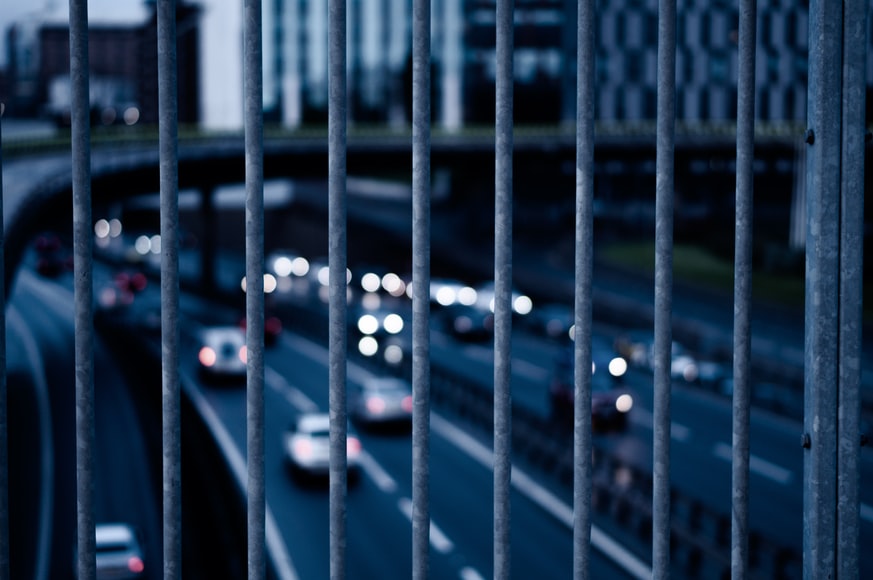
Credit: Eilis Garvey via Unsplash
Discussing the practicalities around making ecocide a crime is vital, but so too is considering what a crime of ecocide may look like. While we do not yet have a crime of ecocide in the UK and therefore cannot share any actual examples, there are recent cases where environmental destruction has damaged the Earth and impacted human life so badly that questions arise over how they were allowed to happen.
In December 2020, a landmark ruling was passed in the UK that toxic fumes killed nine-year-old Ella Kissi-Debrah who lived in south east London. By this point, we already knew that between 28,000 and 36,000 people will die in the UK every year because of toxic air pollution, but never had it been ruled as a cause of death in court before.
Speaking at the inquest, Professor Sir Stephen Holgate told the coroner: “Every single number that goes into these studies is a single person dying.”
Ella lived with her family just 25 metres from London’s South Circular road in Lewisham. It is there that the traffic constantly caused levels of nitrogen dioxide air pollution to exceed the annual legal limit of 40µg/㎥ between 2006 and 2010. Ella would walk to and from school along the main road every day.
In the last two years of her life, Ella was having severe asthma attacks, leading to her being rushed to hospital about 30 times. Her lungs collapsed or partially collapsed on several occasions. Holgate later found that Ella’s attacks were triggered more in winter, when air pollution spiked. Ella’s mother, Rosamund Kissi-Debrah, discovered after her daughter’s death that in the two days around when Ella died, there were big spikes in air pollution in the area.
Speaking in a heartbreaking moment in court, Kissi-Debrah said: “We were desperate for anything to help her. I would have moved straight away, I would have found another hospital for her and moved. I cannot say it enough. I was desperate, she was desperate.”
Human rights lawyer Jocelyn Cockburn, who took on Ella’s case, explained that the UK was “knowingly in breach of its legal obligations” laid out in the Air Quality Directive regarding high levels of air pollution, including in the area where Ella lived.
“The impact of toxic air on health was well known and the government should have been aware that its inaction was costing lives,” said Cockburn.
“The inquest into Ella’s death brought into focus the impact of failures to clean up the air on an individual child. This case helped illustrate the cost of inaction vividly and the government is on notice that it must act now to avoid the risk of future deaths.”
Stop Cambo
The Cambo oil field is another example of an action that could, if ecocide were a crime, be deemed illegal, considering the damage it will do to the environment.
The UK government is set to approve a massive new oil field this year, despite the fact that, in May, the International Energy Agency said that there can be no new oil, gas or goal developments if we are to stay within safe climate limits. Cambo, which will be situated west of Shetland, is owned by Shell and private equity backed by Siccar Point Energy, who want permission to extract 170 million barrels of oil in the first phase.
That is equivalent to the annual carbon pollution from 18 coal-fired power stations. The companies plan to operate this oil field until 2050, which is the same year the UK has committed to reaching net zero in terms of greenhouse gas emissions.
To maintain a liveable climate, global temperatures cannot rise by more than 1.5°C and so it has been assessed that no new fossil fuel projects should begin. The UK currently ranks fifth globally in terms of the amount of carbon emissions produced since the Industrial Revolution. Apart from anything else, Cambo would be going completely against the principles of climate justice.
But also, many communities around the world are living with the devastating consequences of a climate crisis that they did very little to cause.
Speaking at COP26, a StopCambo spokesperson said: “A worrying observation is the presence of so-called discourses of delay in Parliament. These discourses have the potential to seriously inhibit the urgent action we will need to see at COP26 and stress the importance of cutting ties with the fossil fuel industry.”
Referring to the subjects covered in a debate ahead of COP26 in parliament on 28 October, the StopCambo spokesperson said: “The new coal mine in Cumbria and Cambo oil field in Scotland were largely avoided by Conservative Party MPs – a glaring omission, given the International Energy Agency’s statement that there can be no new fossil fuel developments if we want to keep global warming below 1.5 degrees.”
Sewage leaks
Another recent example of shocking environmental damage which has not yet been brought to court is untreated sewage being dumped into rivers and seas.
Robirosa said: “A topical example is water companies who appear to be illegally dumping untreated sewage into rivers and seas.
“The EA do not have sufficient resources to prevent every instance of this, the sanctions are not always serious enough to prevent breach and the costs of a sewage system which ‘fixes’ the issue mean that a water company is unlikely to take meaningful steps to do so.”
Ecocide and our human rights
With all this in mind, why is ecocide a human rights issue in the UK?
Last June, the Committee on Climate Change in the UK warned about disruption to food supplies as soon as the 2040s and a sharp reduction in the output of arable farming.
Every two minutes in the UK a baby is born in an area with dangerously polluted air which could put them at risk of developing serious health conditions, such as asthma.
Sarah Woolnough, chief executive of Asthma UK and the British Lung Foundation, told us: “Every child deserves the best start in life and our government needs to act now to cut air pollution levels and do their duty to protect future generations from this invisible threat.”
One billion children globally already suffer from exposure to extreme climate risk, according to UNICEF.
Four degrees of global heating could kill around half of the world’s population, as the Potsdam Institute for Climate Impacts Research reported in 2012.
Our right to health and our right to life is being impacted by the climate crisis here in the UK and around the world.
Article 25 of the United Nations Declaration of Human Rights (UNDHR) states “everyone has the right to a standard of living adequate for the health and well-being of himself and of his family”. Ella Kissi-Debrah did not have this and neither do so many others because of the climate crisis.
And it is not just our rights here and now. The damage being caused now will impact the rights of our children, grandchildren and future generations.
At COP26, climate activist Rangatahi India Logan-Riley (Ngāti Kahungunu ki Heretaunga) spoke of indigenous peoples’ attitudes towards and experience of climate change, saying: “Six years ago, I first spoke these stories into this space, and every year since I have repeated the same words: wildfires, sea level rise, wildfires, sufferings, sea level rise, biodiversity loss, sea level rise. Emissions continue to rise.
“Land back, oceans back. This is all part of following indigenous leadership. This is what keeping warming below 1.5C looks like. This is an invitation to you. This COP, learn our histories, listen to our stories, honour our knowledge and get in line or get out of the way.”
The views expressed in this article are those of the author and do not necessarily reflect the views of EachOther.

